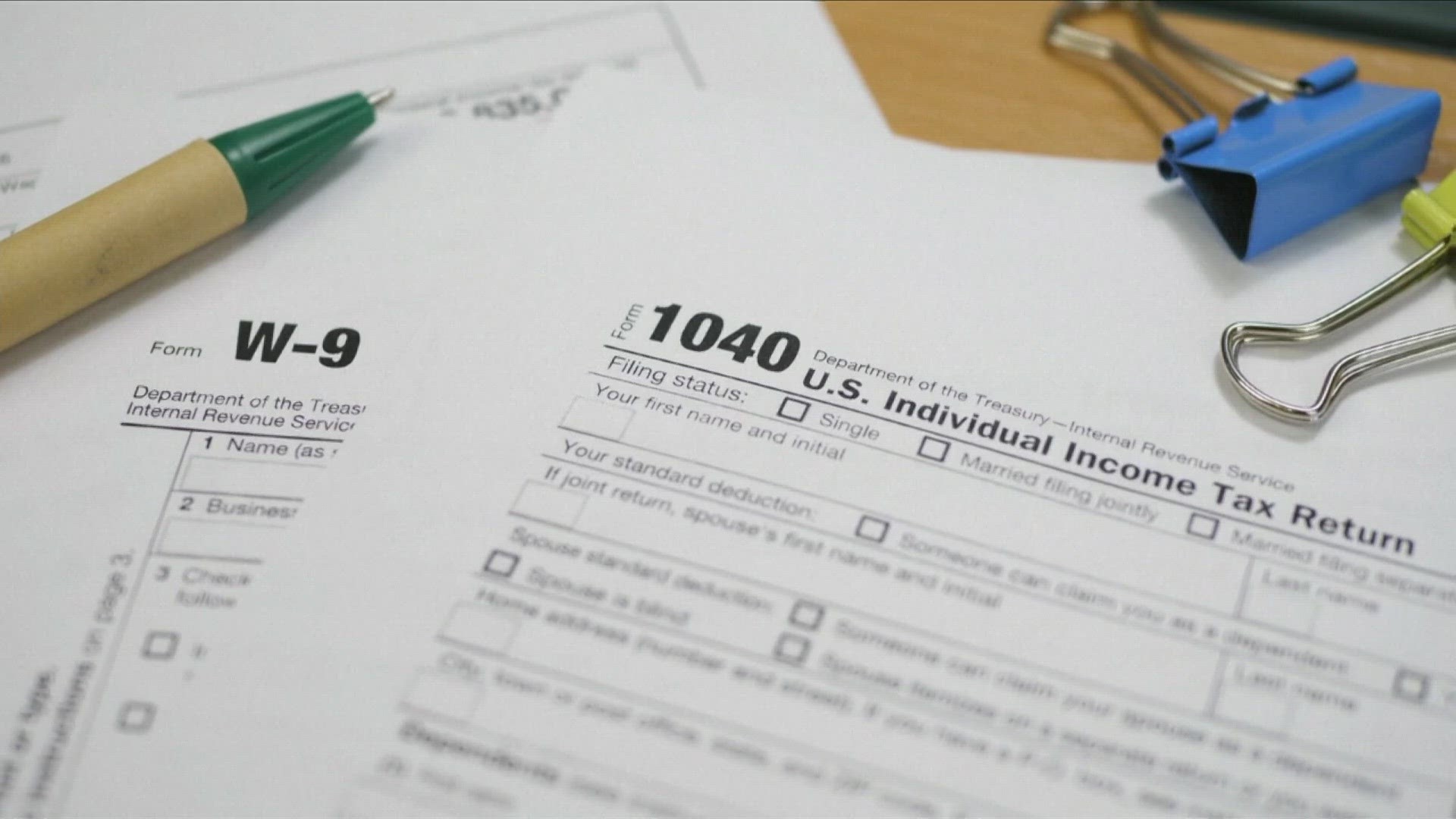WASHINGTON — Tax Day falls on April 15 for most Americans this year, meaning there are hours left to file your taxes.
The Internal Revenue Service has already received over 90 million tax returns and processed more than 88 million, according to the latest data from the tax agency.
More than 128.7 million tax returns are expected to be filed this season, according to the IRS.
Early tax data suggests Americans are seeing larger tax refunds this year, partly due to the provision changes made by the IRS to counteract inflation. The tax agency pushed tax brackets and standard deductions up by 7% for 2023 tax returns.
Here's what you need to know about the tax deadline, including common tax relief exceptions and what to do if you need an extension.
When are taxes due?
The annual tax deadline, known as Tax Day, is April 15.
For those who live in Maine or Massachusetts, the deadline is extended until April 17, 2024, due to official holidays observed in those states.
Are there any exceptions?
Yes. The IRS says some taxpayers living overseas and disaster victims have later filing deadlines. That means storm, flooding and wildfire victims in some parts of Maine, Rhode Island, Hawaii, Alaska and other states have extra time to file; extended deadlines vary by state.
The tax relief deadlines are for people in disaster situations designated by the Federal Emergency Management Agency. Review the full list here to check if your county is included and see details.
When can I expect my tax refund?
The IRS expects most refunds to be issued in less than 21 days after filing.
Taxpayers can check the agency's "Where's My Refund?" page on IRS.gov for a status on their refunds.
How to file a tax extension
If you need more time to file your taxes, you have until April 15 to request an automatic six-month tax filing extension. The IRS says individual taxpayers can do this through its Free File tool or by filing Form 4868.
While these extensions can give you more time to find missing documents or finish filling out paperwork, they don't give you more time to pay. Nerdwallet says that if you owe taxes and want an extension, you need to estimate your tax bill and pay as much of it as you can to avoid a late payment penalty.
A six-month extension will give taxpayers until Oct. 15 to file their tax returns.
Are tax refunds bigger this year?
Early data on tax refunds shows the average amount refunded is nearly 5% larger than 2023, according to the latest numbers available from the Internal Revenue Service.
As of March 29, 2024, the refund average was $3,050, a 4.8% increase from the $2,910 average seen during the same period in 2023.
Part of the reason that Americans are receiving bigger tax refunds on average is due to the provision changes the IRS made to counteract inflation. The tax agency pushed tax brackets and standard deductions up by 7% for 2023 tax returns.
Val Lick contributed to this report.

